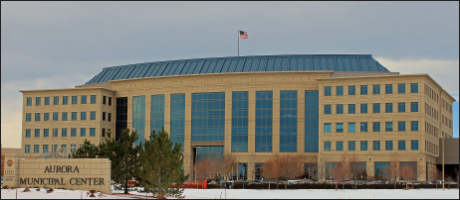

Moving to Aurora, Illinois: A Comprehensive Relocation Guide
Considering moving to Aurora, Illinois? This diverse Fox Valley city offers affordable living, riverfront location, and convenient access. With approximately 180,000 residents in 2025, Aurora combines working-class character with explosive growth and Illinois’ second-largest city. Find trusted local services for moving, living, and working in Aurora.Aurora Relocation Directory
Demographic Profile to Consider If Moving to Aurora:
Aurora’s 2025 population is approximately 180,000 residents across Kane, DuPage, Kendall, and Will counties, making it Illinois’ second-largest city. The median age is around 34 years, with diverse working families, Hispanic residents, and young professionals. The population is approximately 47% Hispanic, 41% White, 10% Black or African American, 6% Asian. Aurora features a historic downtown along the Fox River, diverse neighborhoods, extensive suburban development, and serves as the Fox Valley’s largest city. The city attracts working families seeking affordability, Hispanic residents, and those wanting Western suburbs access with lower costs. Aurora appeals to diverse income levels prioritizing value and accessibility. The community balances historic character with growth and increasing diversity.
Cost of Living to Consider If Moving to Aurora:
Aurora offers exceptional affordability for Chicagoland. Median home values range from $280,000 to $380,000 in 2025, significantly lower than inner suburbs while providing metropolitan access. The median household income is approximately $72,000. Rental properties average $1,400 to $2,000 monthly. Illinois’ state income tax is flat 4.95%. Property taxes vary by county with portions in lower-tax areas. Overall cost of living is very competitive for Chicago access, making Aurora highly attractive for first-time buyers, working families, and those seeking affordability. The city provides tremendous value with Chicago accessibility. Housing costs create exceptional accessibility for diverse income levels.
Economy and Job Market:
Aurora’s economy includes manufacturing, healthcare, retail, and distribution. Major employers include Rush-Copley Medical Center, Caterpillar, Hollywood Casino Aurora, retail centers, and businesses throughout the Fox Valley. Many residents commute to Chicago or work throughout the western suburbs. The city’s strategic location attracts distribution and logistics facilities. The broader Chicagoland economy offers vast opportunities. Typical commute times to Chicago range 50-75 minutes via Metra or highway. The diverse economy provides opportunities across sectors. Many residents work in manufacturing, healthcare, logistics, and service industries.
Education:
East Aurora School District 131, West Aurora School District 129, Indian Prairie School District 204, and others serve Aurora students with varied quality requiring family research. Schools including West Aurora High School and East Aurora High School serve different areas. Waubonsee Community College and Aurora University provide higher education. The educational infrastructure serves the large, diverse population with quality varying significantly by district and school.
Recreation and Lifestyle:
Aurora offers a revitalized downtown along the Fox River with the Paramount Theatre (historic venue presenting performances), Hollywood Casino, RiverEdge Park hosting concerts, and restaurants creating entertainment district. The Fox River provides recreation with the Fox River Trail. Residents enjoy Phillips Park Zoo, Blackberry Farm (living history farm), and extensive park system. The SciTech Hands On Museum provides family activities. Proximity to Chicago (40 miles) enables accessing city attractions. The lifestyle emphasizes affordable family living, diverse culture, riverfront recreation, and Western suburbs accessibility. The four-season climate enables varied activities. The community values diversity, affordability, downtown revitalization, and family atmosphere. Living in Aurora means choosing value over prestige, embracing working-class and Hispanic character, and accepting longer commutes for housing affordability within Chicagoland access.
Healthcare and Services:
Aurora residents access comprehensive healthcare through Rush-Copley Medical Center, Presence Mercy Medical Center, and facilities throughout the Fox Valley. The Chicagoland healthcare infrastructure provides quality medical care accessible throughout the region.
Transportation:
Aurora is accessed via Interstate 88 (East-West Tollway), Illinois Route 59, and various corridors. Metra BNSF Line provides train service to Chicago from multiple Aurora stations. Pace operates suburban bus routes throughout Aurora. Most residents use personal vehicles. Typical commute times to Chicago via Metra are 60-75 minutes, by car 50-90 minutes depending on traffic and destination.
Conclusion:
Moving to Aurora in 2025 offers affordable Fox Valley living with diverse community, riverfront character, and Chicago access. The city’s combination of low housing costs, downtown revitalization, and Western suburbs location makes it ideal for working families, first-time buyers, and diverse residents seeking Chicagoland’s most affordable large city where value meets accessibility and diversity defines Illinois’ second city.

